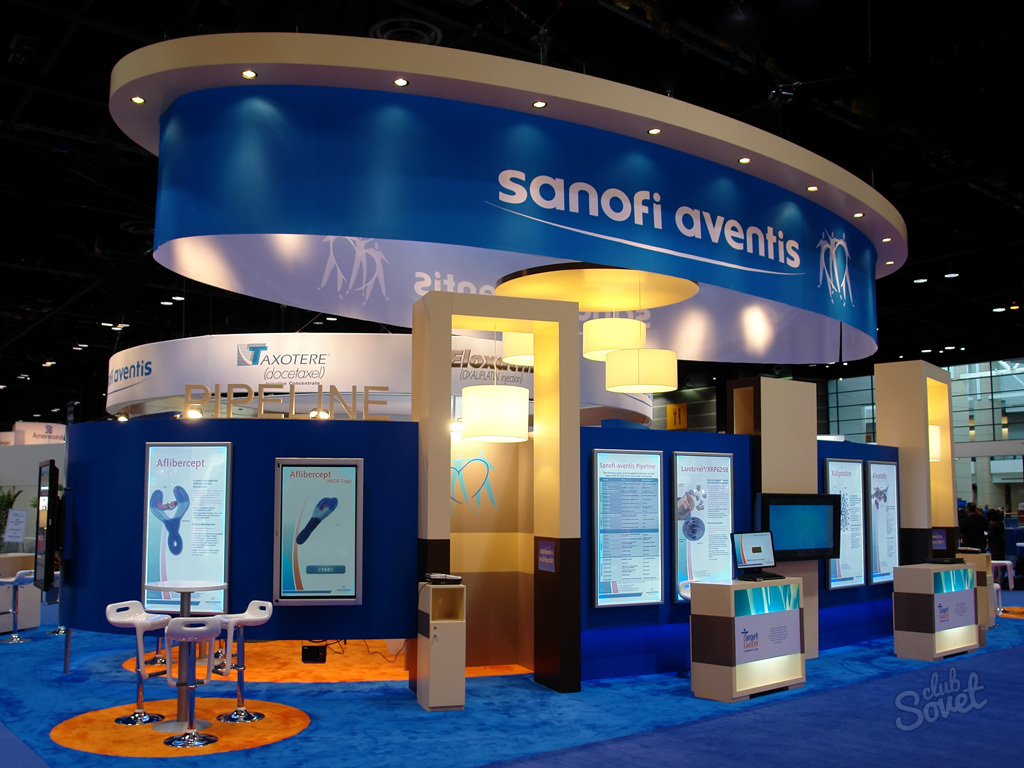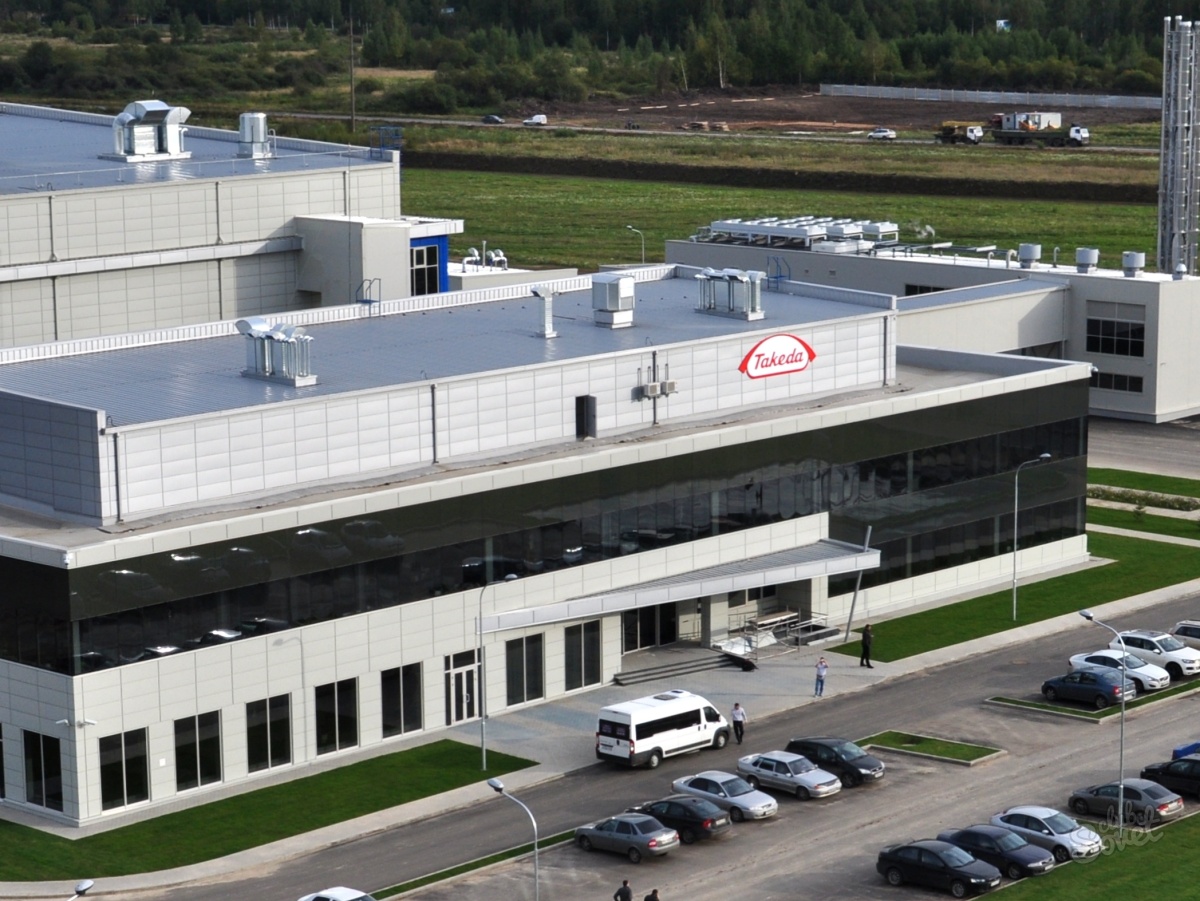The best pharmaceutical companies. Pharmaceutical enterprises
The crisis has radically changed the Russian pharmaceutical market. Expensive foreign drugs have become less accessible due to the devaluation of the ruble. The state announced a new support program "Pharma-2020". However, it takes 5 years to launch a new plant. As a result, Russians will not see the first fruits of the reorientation of the pharmaceutical industry towards domestic production in the short or medium term. In the meantime, the most affordable medicines, costing up to 50 rubles, are gradually leaving the market, as their production under the conditions of state price regulation becomes unprofitable.
Paulo in the US capital and released news related to patents and intellectual property. He is the organizer of the book “Brazilian Congress at the Frontier of Innovation”, which tells about the experience of cooperation between the Brazilian Institute and the partnership of Interpharma.
According to Sotero, the program has hosted three academic conferences at the Wilson Center, the Massachusetts Institute of Technology, the King's Institute in London, and the Institute of the Americas, headquartered at the University of California, San Diego.
Market analysis
To date, according to government agencies, 68% of medicines are produced in Russia from general list permitted. But, despite this, the share of Russian manufacturers is only 28% in monetary terms, since domestic enterprises sell mainly inexpensive drugs. If we count in packages, and not in the proceeds, then the share of drugs produced by Russian enterprises rises to 58%.
Revolving door is an expression used to describe the hiring of former government managers on private initiative or vice versa. In Brazil, this practice is not a crime: there are several government agencies that require their resident to quarantine four months after being fired. Therefore, the revolving door is a corporate capture mechanism widely used by several sectors to influence the country's decisions, as former state managers bring with them not only privileged access to cases of power, but also the accumulation of knowledge about the mode of operation of the body in which he acted.
State regulation of prices has led to the fact that the production of many vital Russian-made drugs turned out to be unprofitable. Tomorrow, consumers may not find aspirin, paracetamol, ascorbic acid and many other necessary drugs in pharmacies. The alternative is to increase prices by almost 2 times. Experts assure that this will not lead to market contraction in ruble terms.
An example of patent law in Brazil
The mechanism has also been used by the pharmaceutical industry. In addition, the president of Interpharm has many years of experience in public positions. The understanding was that isolating certain genes to determine a patient's likelihood of developing cancer is not an invention. Thus, it has been established that in this country it is possible to patent living organisms that have been genetically modified.
However, Brazil has not yet decided how to solve this problem. But the measure supports large organizations representing multinational laboratories in the country, such as the National Confederation of Industry and the Pharmaceutical Industry Association, and the MPs who "represent" them.
Statistics for 2015 show that the share of drugs, inexpensive drugs (costing up to 50 rubles), is declining. While the share of funds more expensive than 50 rubles is growing. The reason for this is probably the increase in prices for the most popular medicines, and not the desire of consumers to purchase better medicines. From this we can conclude that consumers, albeit forcedly, adapt to rising prices, and a sharp drop in consumption will not happen in the near future.
The rationale, in contrast to the process started in the United States, is that if Brazil does not allow the patenting of live microorganisms, it will be at a disadvantage relative to other countries in the world. This issue is gaining more and more supporters in the Legislative Assembly.
Before the document could be voted on, Deputy Bruno Araujo asked for a suspension of the session for a public hearing on the matter. The debate never took place, but the bill was sent to the next committee with no regard for Lima. Brazilian patent legislation is quite broad in terms of patent protection, even more than international treaties require.
Production of medicines in Russia
The production of medicines in the Russian Federation belongs exclusively to the sphere of big business. The introduction of a new drug to the market has a high investment capacity. In addition, the current rules of the game, established by the state, significantly increase the need for capital. At the same time, more than 500 companies operate on the market, but only 20 of them occupy 2/3 of the market, and the TOP-10 covers more than 60% of the market.
Rocinha advocates a thorough review of the current law, providing for the adoption of several mechanisms that protect the rights of patients. Under current law, if the National Institute of Intellectual Property delays the review of applications, this period may be extended. This is an aberration, because in the spread of monopolies, the law prevents the production of generics and prevents the price of drugs from falling.
The project also innovates by introducing public non-commercial use of patents, provided that for public interest purposes, including for national defense and social interests. In other words, it allows generic versions of patented drugs to be manufactured or imported for use in public health programs. The bill also prohibits the issuance of patents for second-use drugs, that is, those that are already patented for the treatment of one disease and then used in another disease.
to the largest Russian companies manufacturers of medicines include: FSUE NPO Microgen, OJSC Pharmstandard, CJSC PHARM-CENTER, OJSC Veropharm, OJSC Nizhpharm, NPF Materia Medica Holding, OJSC Akrikhin, CJSC PharmFirma "Sotex", OJSC "Moskhimfarmpreparaty", OJSC "Valenta", CJSC "Biotek".
As you can see, the market is adapting to the crisis with difficulty, but still. And in the meantime Russian government takes measures to ensure that foreign companies transfer production to the Russian Federation. So far, the approval process has not been completed. There are a lot of obstacles. Only the necessary licensing can nullify all efforts. Experts predict that the transfer of foreign production to the Russian Federation in the current conditions can lead to higher prices for medicines. However, there is no doubt that in 15 years this policy will bear fruit, and drugs manufactured in the Russian Federation will take a leading position in the country and a place in the top ten abroad.
Criticism of the current model of patent protection is not Brazilian exclusivity. Another advantage of the law, little explored in Brazil, is the compulsory patent license in the public interest, which, when triggered, has unexpected results.
Reinaldo Guimarães, Vice President of the Brazilian Association of Chemistry, Biotechnology and its Specialties, recalls that the law has had such Negative influence on the Brazilian industry, which almost completely destroyed it. This is because Brazil does not comply with the ten-year TRIPS Agreement for Developing Countries to Strengthen its Local Industry prior to the adoption of patent laws - unlike India, for example, which complies with the deadline if on a pharmaceutical basis. Parliamentarians were enthusiastic about the idea of globalization, an economic opening that was very strong at the time, and eventually passed a law that made it more convenient for multinational industries to close factories in Brazil and import finished medicine, while national industries strongly hurt,” he explains.
As in any field, there is a rating of the best drug manufacturers in the service market among Russian pharmaceutical companies. There are more than 950 drug manufacturers in Russia. A third of the pharmacy market is occupied by companies that are placed at the very top of the ranking of the best manufacturers. The value of sales of drugs determines the place of the pharmaceutical company in the ranking of the strongest.
It is worrying that now the corporate interests of large laboratories are again becoming a priority of parliament. The new rapporteur appointed on this subject was Deputy André Moore. Very politically, all of them colleagues from the "evangelical group", Kunya, Lira and Mura, are today considered three of the most influential deputies of the House. For this reason, their mere attention to the topic shows how important it is in parliament.
The Senate also helped draw up the Drug Counter. Its newest member in a group of human clinical trials in the country, easing ethical restrictions current legislation. According to Jorge Venano, a physician and coordinator of the National Commission on Research Ethics, affiliated with the National Board of Health, which oversees social activity in the country, the project involves a radical reduction in the rights of people involved in clinical research. The country's Supreme Court eventually suspended the practice there until new legislation was prepared, he says.
Novartis
Pharmaceutical manufacturer Novartis is located on the very place of honor rating. Novartis is the second largest in the world and produces such drugs as Linex, Amoxiclav, Otrivin. This company is Swiss.
Sanofi Aventis

The first candidate for the Senate, Ana Amelia did not receive donations from the pharmaceutical industry when she ran for Parliament. But after being elected, she soon found herself under the patronage of this sector. He also participated in trips organized abroad.
This text is one of the chapters of the book Privatization of Democracy: A Catalog of Corporate Capture in Brazil. Final stage packages of generic drugs. The middleman business is just one symptom: for twenty years, the pharmaceutical giants have made molecules a consumer product like others. Anne Crignon and Natalie Funes. Making diseases for sale.
Bayer
Bayer took third place. Its main office is in Germany. Branches of the corporation operate in almost every country in the world. Bayer is actively involved in innovative drug development. With a focus on the natural sciences, Bayer collaborates with physicians, veterinarians and farmers to understand today's toughest challenges.
The situation is impeccably summarized by the Danish psychologist Mikkel Borch-Jakobsen, a sociologist who has become a keen sociologist and creates documentary titled "Diseases for Sale": Over time, we created medicines to treat diseases. Currently, diseases are created to sell drugs, and diseases that cannot be patented simply disappear from the radar.
We're launching a disease "like we're launching a brand of jeans," he continues. Because no organic lesion is seen, it is often considered psychosomatic by rheumatologists, but, well, a little treatment can't hurt, and here Lyrica is sold all over the world.

Takeda
Pharmaceutical company Takeda ranked fourth in the ranking of the strongest manufacturers in the pharmacy market. Takeda is a Japanese company and has opened its offices in more than seventy countries around the world. Global industry leader focuses on diseases of the central nervous system, metabolic diseases, oncology, cardiovascular diseases, and also manufactures vaccines.
Another favorite target: "Soul Through Magic" the full range of states of the big tote called "depression" was put on antidepressants grief love, loss, fatigue or doubt of meaning from timidity and restraint, from fear of public speaking: any manifestation of modesty is now processed into the “social anxiety syndrome”, and this is millions in the treasury of its inventors.
As for the treatment of "gastroesophageal reflux", which brings 600 million euros a year for drug manufacturers to alleviate it, this is only heartburn after severity. In the United States, David Healy's psychiatrist and Cardiff University professor, who has paid the price for an apparent career slowdown, observes with a frustrated "sickness of the day" squad: " bipolar disorder”, formerly manic depression. After the transformation of anxiety into depression, the tendency is to make depression, even transient depression, a bipolar disorder.

Teva Pharmaceutical Industries Ltd
Teva Pharmaceutical Industries Ltd is headquartered in Israel. This manufacturer is known for the production of generic drugs. Teva products are distributed in 120 countries. 44 factories produce medicines, the names of which are about 1480 pieces. Teva Pharmaceutical Industries Ltd has been on the market for over a century. It was originally based in Jerusalem. In addition to generic drugs, the company develops innovative drugs in a variety of areas.
The so-called "me too" is the name of many drugs that are presented as new and are actually copies. Why not continue producing the original if it's good medicine? Simply avoiding "pedigree" is enough. So in order to keep this drug out of the public domain, the manufacturer will be reinstalling it, renaming it, making small changes like adding a vitamin so it's not exactly the same.
The laboratory is under no obligation, except for serious illnesses, to compare its new product with another previously existing one and demonstrate any superiority. But protective mesh permeated everywhere. Laboratories must prove the effectiveness of their new drugs. And several companies have not hesitated in the past to cover up negative clinical trials.

The corporations ranked among the top five pharmaceutical manufacturing firms are the most active and successful. They are constantly busy developing new medicines that meet the requirements of mankind. These companies never stand still. They are expanding, improving the quality of medicines, and are reliable suppliers of pharmaceutical products to the market.
Poorly paid, under-appreciated, drowning in kilos of paperwork when they're not too attached to the pharmaceutical industry, these experts are sometimes content with lab-written summaries instead of checking tests. But, once they have appeared, a drug, even a dangerous one, can remain in circulation for years.
Pharmacovigilance? "Gas-works", according to the president of the Necker Institute. "It will take two years to ban cyanide." Too many interested bodies, commissions, sub-committees, sub-committees, working groups, scattered funds. Alerts are hard to break through. 31 regional centers spread throughout the country. Doctors and pharmacists have to raise worrisome side effects.



















